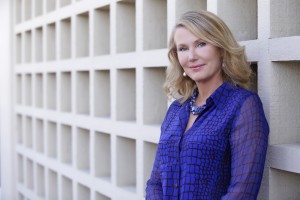
By Sandy Cardy
Special to the Financial Independence Hub
I’ve been advising clients the same thing for many years: “Wealth is built with returns over time.”
It’s sound, life-long, investment strategies that have the greatest impact on the financial health of your retirement.
All the while I was giving this advice, I’d thought of investing as being all about money, so my coaching involved objectives such as:
- Minimizing income tax
- Investing for children’s education
- Investment planning and asset allocation
- Tax-efficient earnings
- Navigating government retirement and savings plans
- Income splitting
- Retirement needs analysis
Health should come before Wealth
All of these being quite essential to providing safeguards for when there won’t be any more paychecks. But all this while I had been focusing too narrowly! Sound investing is not just about money. It’s about more than that, and it begins with something else entirely: Health comes before wealth – or should.
As I indicated in an earlier article, cancer was a huge wake-up call for me, because what good is financial planning if you aren’t around to enjoy the rewards? So I began investing, heavily, in both my mind and body… Embarking on a quest to get back in balance, I spent three years researching all things health-related. Using my body as a test lab, I rebuilt my health upon the foundation of ‘prevention is better than cure.’
Just as wealth is built with returns over time, the same concept applies to health. Small steps can be meaningful and add up to great strides in the long run. For instance, a few of the small steps to help protect your financial future are:
- Start a retirement savings plan and save at least 6% of your pretax earnings using fixed regular, automatic contributions. Starting early will have a profound impact on your future retirement savings.
- Take time to determine your asset allocation, one of the most important decisions to make regarding your investments. Work with your financial advisor to determine what risk you are comfortable with, and how much you feel comfortable losing in a crisis so you can weather the storms the market throws at you.
- Diversify for growth, by considering a balanced portfolio with at least some allocation to equities.
- Take advantage of all government-incented plans and contribute the maximum you can afford to these.
- Understand the fees you are paying, as higher fees can compound over time to a noticeably lower nest egg.
Three steps to invest in your Health
These days, I’m equally passionate about helping others take similar steps to ensure they stick around to enjoy the fruits of their investment efforts. So here are three simple steps for investing in your health to get started …
1.) Add daily fiber
Fiber equates to “regularity,” right?. “Well, ye-ah, so what?” I used to scoff. Well, fiber’s a load more beneficial than for just keeping you regular. Beginning with managing estrogen. And before you men tune out – estrogen regulation is vital for you too, as we all have estrogen.
Normally, used-up estrogens are excreted (in stool and bile). But if you have a stressed-out liver (and many do) you may not be excreting estrogens as well as you might.
The standard North American diet is prone to raising estrogen levels, because the wrong kind of diet can alter gut bacteria causing used-up estrogens to be re-absorbed into the bloodstream.
Over time, accumulating estrogens can be a contributing factor to breast and gynecological cancers in women, and prostate cancer in men.
One way to shunt out estrogens is through fiber. Since there is no fiber in meat, dairy, sugar and refined foods, to boost fiber intake grab for seeds (like flax) and up your fruit and vegetable intake.
Experts recommend at least 30 grams of fiber per day. If you don’t feel you can get that from food, medicinal fiber (from supplements) can help.
2.) Change your breakfast routine – just a little
What you eat at breakfast sets the tone for the day, and improvements can begin with two simple moves.
First, drink a glass of warm water, with the juice of half a lemon, 15 to 30 minutes before eating. If half a lemon is too harsh, start with just a few drops and slowly build up to half a lemon. This will get your gut’s HCL (hydrochloric acid) stimulated. You want that because HCL is bad for bugs and good for you! HCL is our first line of defense against bacteria and pathogens: HCL kills bugs that can make you sick. Also, healthy levels of HCL stimulate the enzymes that break down food and optimize extraction of food’s nutritional value.
Second, eat a balance of protein, fat and fiber at breakfast, to give you balanced energy reserves throughout the day.
3.) Support your liver
The liver is the largest organ of the body and performs about 500 functions, including blood detoxification. Our livers are more overtaxed than ever. Also, many people have sluggish livers. Signs the liver is overburdened manifest as things like digestive issues, skin problems, lethargy, blood sugar fluctuations, hormonal imbalances, and intolerance to coffee and alcohol.
The standard liver enzyme tests, may well result in your doctor telling you your liver is fine. The reality is that liver abnormalities will only register in standard bloodwork after years of abuse.

While our livers are designed to excrete toxins naturally, there are a couple of contemporary problems that obstruct optimal functioning. First, in today’s world, toxic load exceeds the capacity of the channels of elimination. Secondly, some people are genetically better able to detox than others. By eating the following several times a week you can support your liver’s detoxification:
Brassicas (like cabbage, cauliflower, broccoli): good not just for eliminating toxins, but also for their high nutrient count and for facilitating the excretion of estrogens – and remember, lower estrogen helps prevent certain cancers.
Alliums (onions and garlic): these contain nutrients in the sulfur family and support the liver’s detox pathways.
Turmeric: this spice contains curcumin, which is both anti-inflammatory and supports liver detox.
I’ve learned from personal experience, true wealth is about more than balance sheets and income statements – health is vital to the equation too.
Sandy Cardy is a bestselling author (The Cottage The Spider Brooch and The Second Wife) and one of Canada’s most respected tax and estate planning experts. Diagnosed with cancer in 2012 and now cancer-free and thriving, she speaks and teaches widely on how to make sound personal and financial decisions, embrace radiant health, and live our lives to the fullest. You can sign up for Sandy’s newsletter and download her eBook (7 Steps for Finding the Right Financial Advisor and 7 Steps for Finding the Right Health Care Provider) on her website. You can also find her on Facebook, here and Twitter, here.


